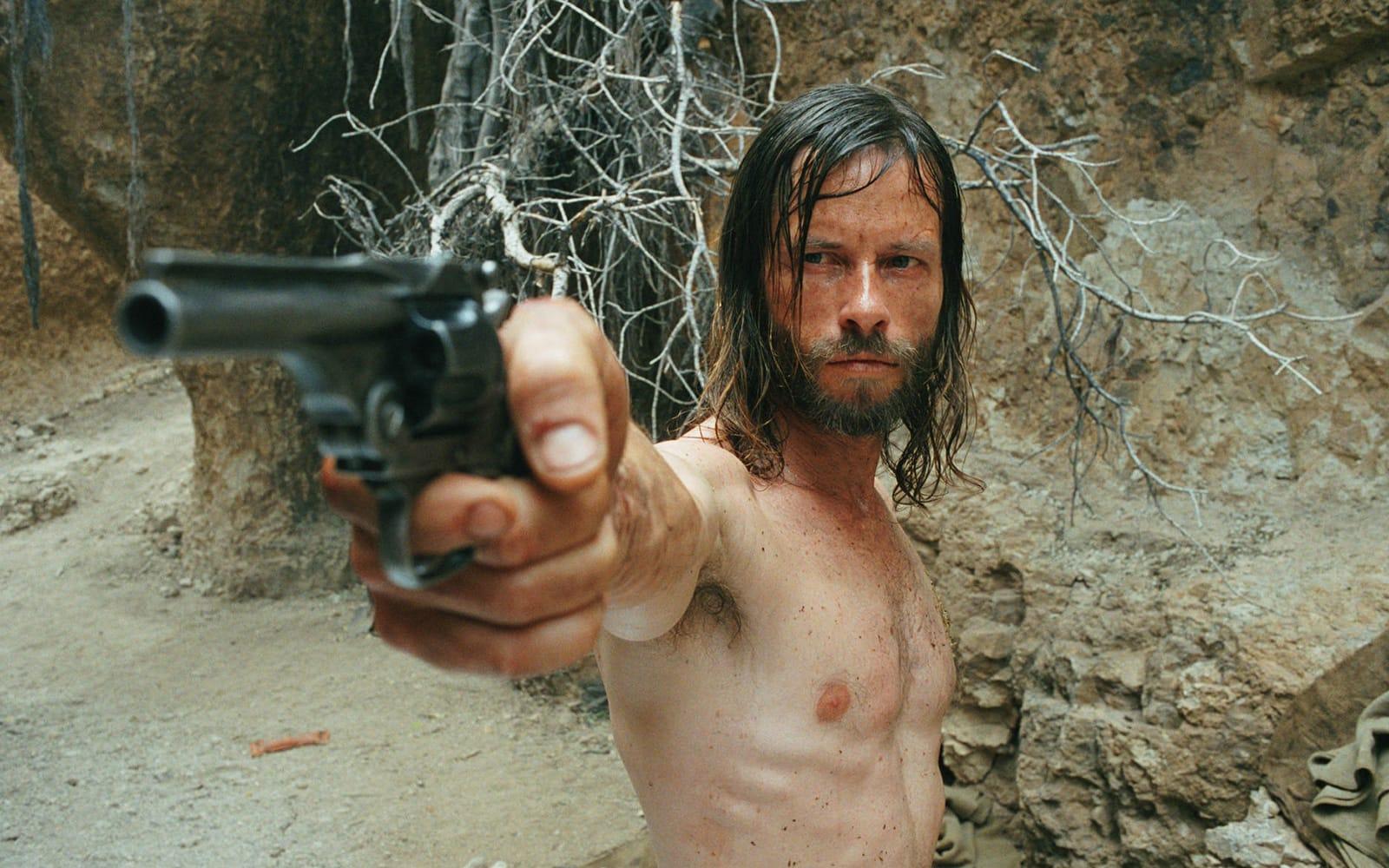The Proposition by John Hillcoat (Review)

A western set in the outback of Australia in the late 19th century, The Proposition is a stark, violent, blood-soaked film that hearkens back to the finest Clint Eastwood westerns. Guy Pearce — who, with his long straggly hair, stubble, and cigarette, even looks like the Man With No Name — plays Charlie Burns, whose outlaw family has become legendary in the country for their bloodthirsty ways.
When he’s captured by the military along with his younger brother, he’s given a second chance. He has 9 days to dring back his older brother Arthur, the head of the gang and mastermind of their violence. If he doesn’t, his younger brother will be hung on Christmas Day.
As he travels through the outback — captured in all of its hellish, godforsaken beauty by director John Hillcoat — the film shifts to Captain Stanley, the army officer who has given Charlie this second chance. Sneered at by his men, and second-guessed by the townsfolk who want vengeance for the heinous crimes perpetrated by the Burns family, Stanley finds his hold on things slowly slipping away.
Though Pearce is given top billing, Ray Winstone’s captain ultimately serves as the film’s emotional core, and is a much more interesting character. A good and decent man, Stanley attempts to hold onto some semblance of justice and civilization in this hellish place, even as his actions and lack of control could potentially lead to more bloodshed. Meanwhile, he does his best to shield his fragile wife — played by the always lovely Emily Watson — from the horrors of the country.
The film’s script, written by Nick Cave (yes, that Nick Cave) is rife with symbolism and thematic elements — vengeance, racism, family, honor, the corruptible nature of man, evil begetting evil, and so on. So much so that it does get bogged down from time to time, or seems to wander as aimlessly as Charlie does out there in the wilderness. Also, several characters, such as an erudite bounty hunter and Stanley’s superior, are not developed and utilized nearly as well as they could have been.
However, the film always returns to its central violent themes with a crackling, harrowing intensity (which is aided by Nick Cave and Warren Ellis’ music). Furthermore, the film never shies from the brutality the surrounds the characters, threatening to overwhelm that at any moment. The constant presence of flies, even on holiday dinners, drives home a sense of contamination, and the violence — though nowhere near as prevalent as one might think — is simply shocking when it does erupt on screen, thoroughly drawing the viewer into film’s the dark, conflicted world.